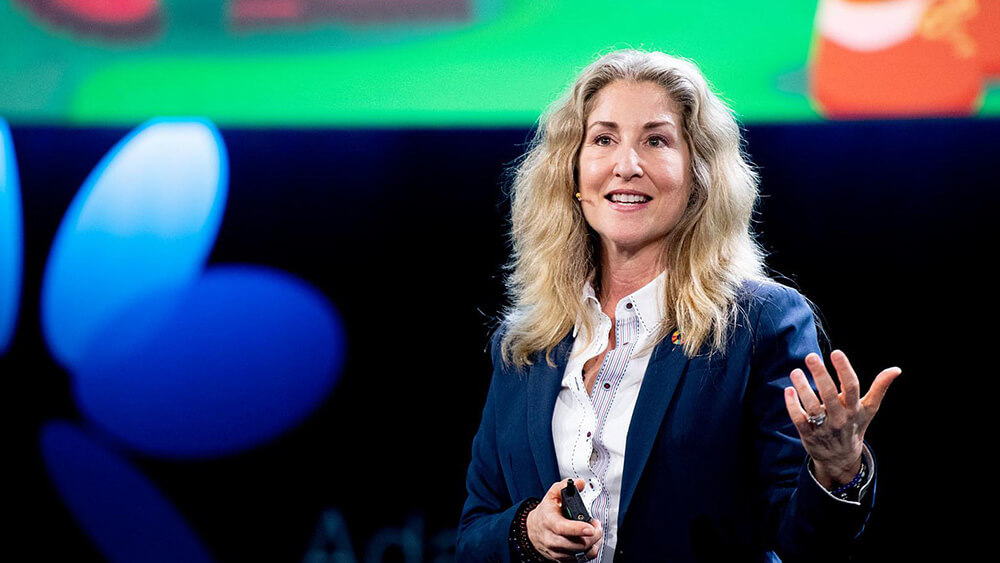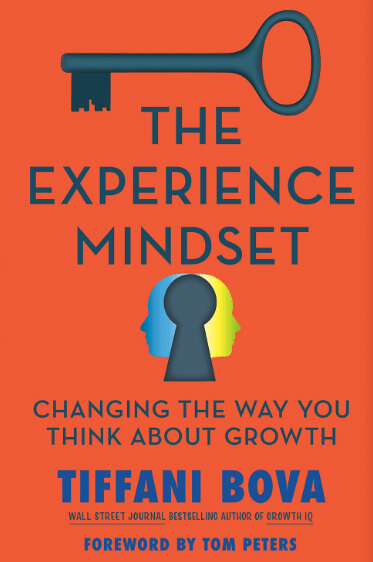
In her new book, The Experience Mindset: Changing the Way You Think About Growth, Salesforce executive Tiffani Bova unveils one way companies can keep employees happy.
As the Great Resignation showed the corporate world, employees are no longer willing to settle for a job that doesn’t align with their values. In her newly published book, The Experience Mindset: Changing the Way You Think About Growth, Tiffani Bova, global growth and innovation evangelist at Salesforce, highlights an important statistic: According to Harvard Business Review, only 38 percent of workers aged 25–45 cited pay as the most important part of their job satisfaction. Beyond appropriate compensation, employees crave purpose in their work. In the same study, 92 percent of respondents said that they produce better work when they “see how the quality of their work matters to the big picture” of their organization.
 “Today’s workforce is looking for more than just a paycheck,” Bova writes. “In fact, the number of employees who cite pay as the root cause of departure has declined 23 percent since 2018. Salary and benefits are no longer enough to recruit, retain, and engage talent.” This rings true for the events industry: Looking at what the PCMA 20 in Their Twenties class of 2023 had to say about their favorite part of their job, the overwhelming theme that emerges is their work’s positive impact on individuals and the world.
“Today’s workforce is looking for more than just a paycheck,” Bova writes. “In fact, the number of employees who cite pay as the root cause of departure has declined 23 percent since 2018. Salary and benefits are no longer enough to recruit, retain, and engage talent.” This rings true for the events industry: Looking at what the PCMA 20 in Their Twenties class of 2023 had to say about their favorite part of their job, the overwhelming theme that emerges is their work’s positive impact on individuals and the world.
Creating a purpose-driven culture is key to attracting and retaining employees who will ultimately deliver the best performances, according to Bova. An example of this in the real world, she writes, is U.K.-based manufacturing firm Unilever. From 2009 to 2019, Unilever CEO Paul Polman zeroed in on the idea that purpose can help reduce tensions in the workforce and create optimal conditions for growth. He decided to rally the organization, its products, and its employees around a purpose beyond reducing costs and producing profits: sustainability, with an emphasis on reducing the company’s waste and greenhouse gas emissions to achieve 100 percent renewable grid electricity.
“As early as 2009, Unilever sought to ensure its employees were on board with the company’s purpose-led approach, recognizing that approach would likely increase the employee experience,” Bova writes. To gain interest from employees, the company created a program where workers were invited to create individualized “future fit plans,” including an 18-month skill-development plan that was both of importance to them and aligned with Unilever’s goals. This approach worked wonders: During Polman’s time at Unilever, the organization delivered a total shareholder return of 290 percent, and annual sales rose from $38 billion to more than $60 billion. Though Polman’s tenure ended in 2019, this purpose-led approach still attracts employees today. Citing Harvard Business Review, Bova writes that in 2020, 92 percent of those who have attended a “discover your purpose” type of workshop for their role reported having jobs that inspire them to “go the extra mile, compared with only 33 percent of those who had not attended one.”
“Instead of enacting top-down mandates directed at employees without regard for what they want or need,” Bova writes, “businesses must see themselves as in service for them. It’s no longer enough to win at customer experience alone. You must also win at employee experience, which is no more or less than the sum of every employer-employee interaction.”
Casey Gale is managing editor of Convene.
